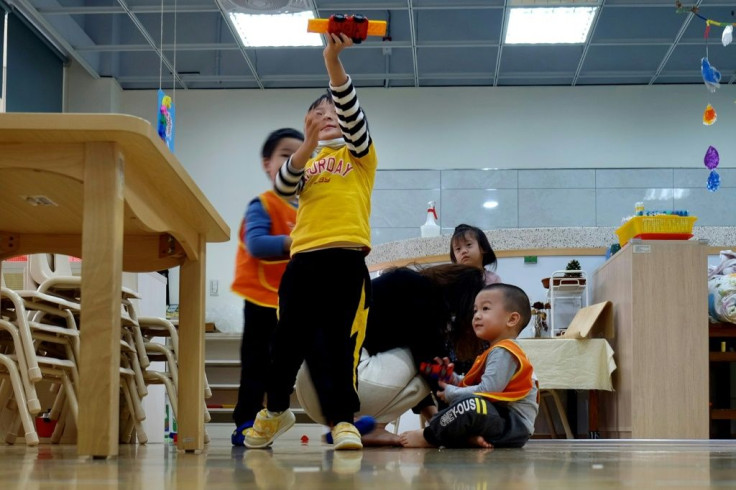Taiwan Offers Taipei Residents Up To $1,600 'Baby Bonus' To Combat Population Decrease

KEY POINTS
- Taipei's government is doubling baby bonuses for parents with up to three children
- The increase in Taipei's baby bonuses would begin on April 4, 2023
- Taipei councilors urged the government to improve housing and job creation
Taiwan's capital city Taipei wants to double the amount of "baby bonus" it provides parents as the city battles population decrease.
Taiwanese news outlet Focus Taiwan reported, citing Taipei's Department of Civil Affairs, that beginning April 4, registered families in the city would receive a lump sum of $1,306 at the birth of their first child, $1,470 once they have a second child and $1,633 for their third child.
Current baby bonuses in Taipei are pegged at $653 for the first child, $816 for the second and $980 for the third.
An estimated 23,210 households in Taipei will enjoy higher baby bonuses once the city council approves it.
According to the Taipei city government, they would need to increase their allocation for the program to $27.3 million from its current budget of $13.3 million.
The announcement came after Taipei's population failed to return to the 2.5 million mark by the end of February and early March.
According to the Taiwanese government-run Central News Agency, the capital's population at the end of February was 2,490,133, nearly 10,000 short of their target population.
Despite not reaching their target, Taipei's Civil Affairs Director Chen Yongde was hopeful their city population would reach 2.5 million by the end of this month and early April.
Taipei City Councilors You Shuhui and Huang Jingying urged the city government to improve housing and offer more opportunities to encourage young people to get married and start a family in the capital.
Taiwan News reported that Taipei's high real estate prices, low wages, and low cost of living in nearby cities of New Taipei and Taoyuan are pushing city residents to leave the capital.
However, the decrease in population is also evident in the entire island after data from Taiwan's Ministry of the Interior revealed that their population dropped by more than 110,000 in 2022.
Last year, the island's population was recorded at 23,264,640, compared to 23,375,314 in 2021.
The cumulative number of births in 2022 is lower compared to the previous year, at 138,986.
The island's National Development Council (NDC) warned that Taiwan could replace its neighbor South Korea as the country with the lowest fertility rate in the world by 2025.
NDC said a fertility rate of 2.1 would ensure a stable population on the island, but Taiwan only recorded a rate of 0.98 in 2021, and the figure would only reach 1.12 in 2035.
Taiwan's neighbor and closest rival, China, is also facing a demographic problem after its population fell for the first time in six decades.
According to China's National Bureau of Statistics, the country's population dropped by at least 850,000 to 1.41175 billion at the end of last year.
Chinese demographers feared that the population drop would likely cause the economy to slow and government debt to balloon as more elderly people would have to deal with their health and welfare expenses.

© Copyright IBTimes 2025. All rights reserved.






















